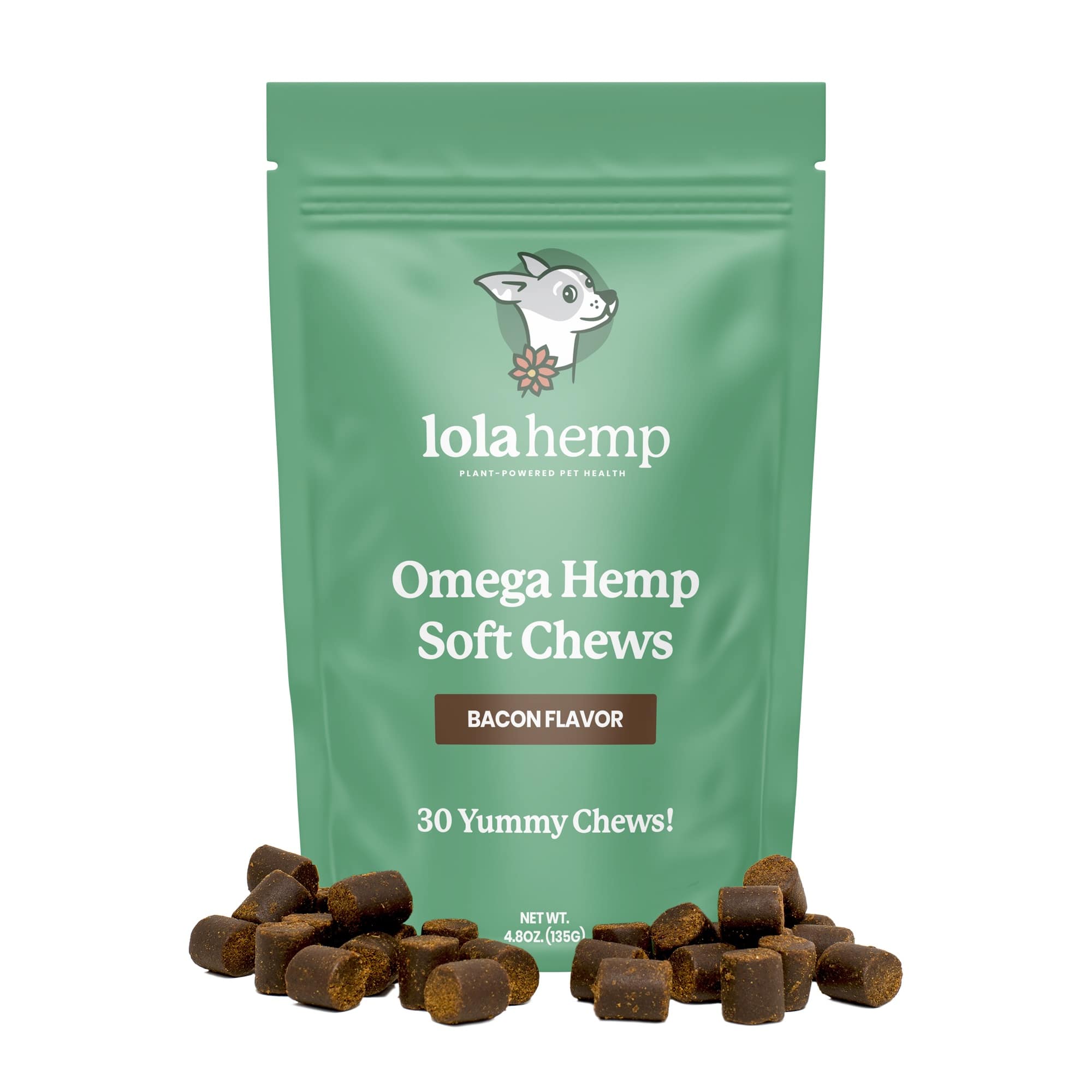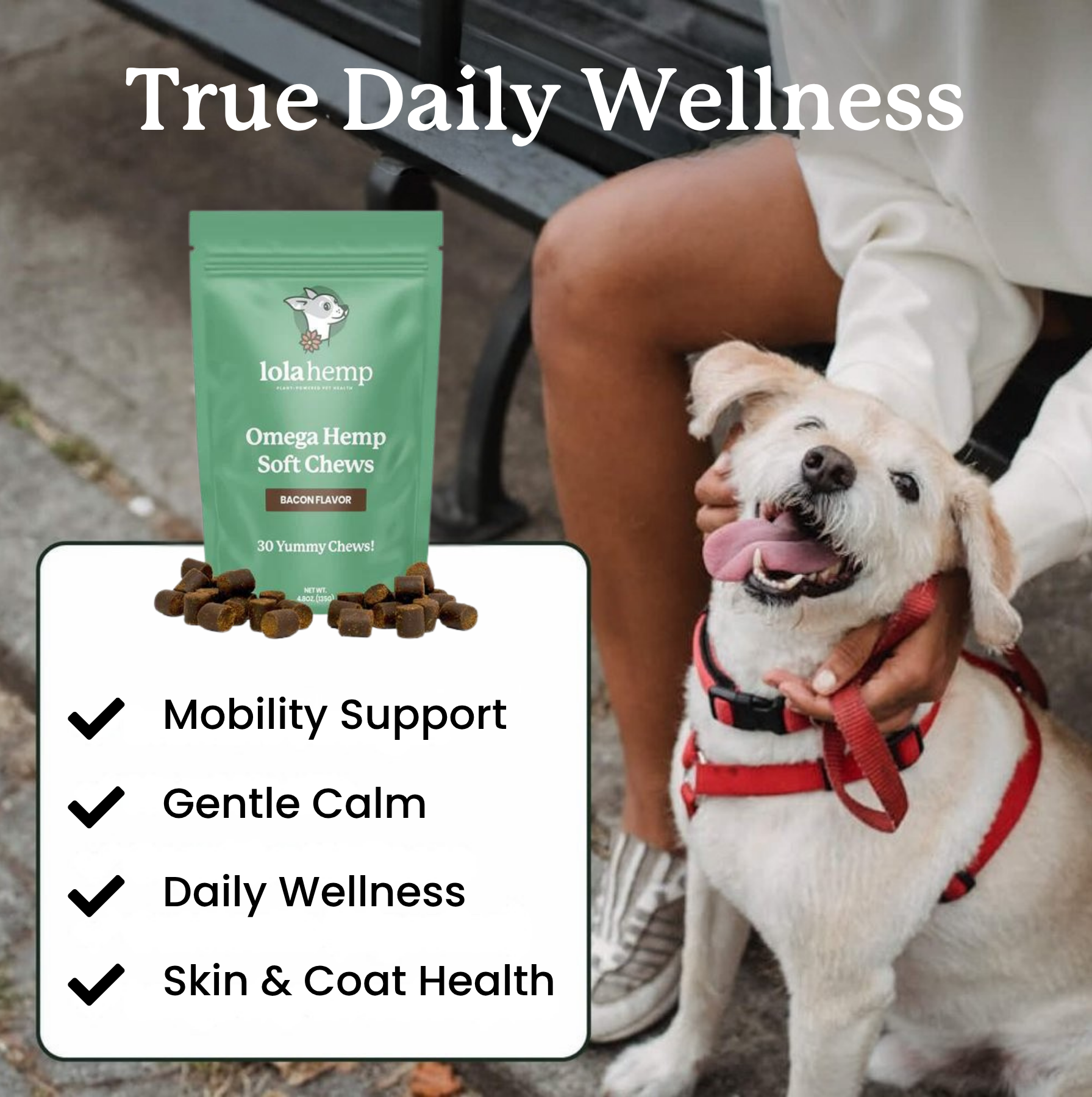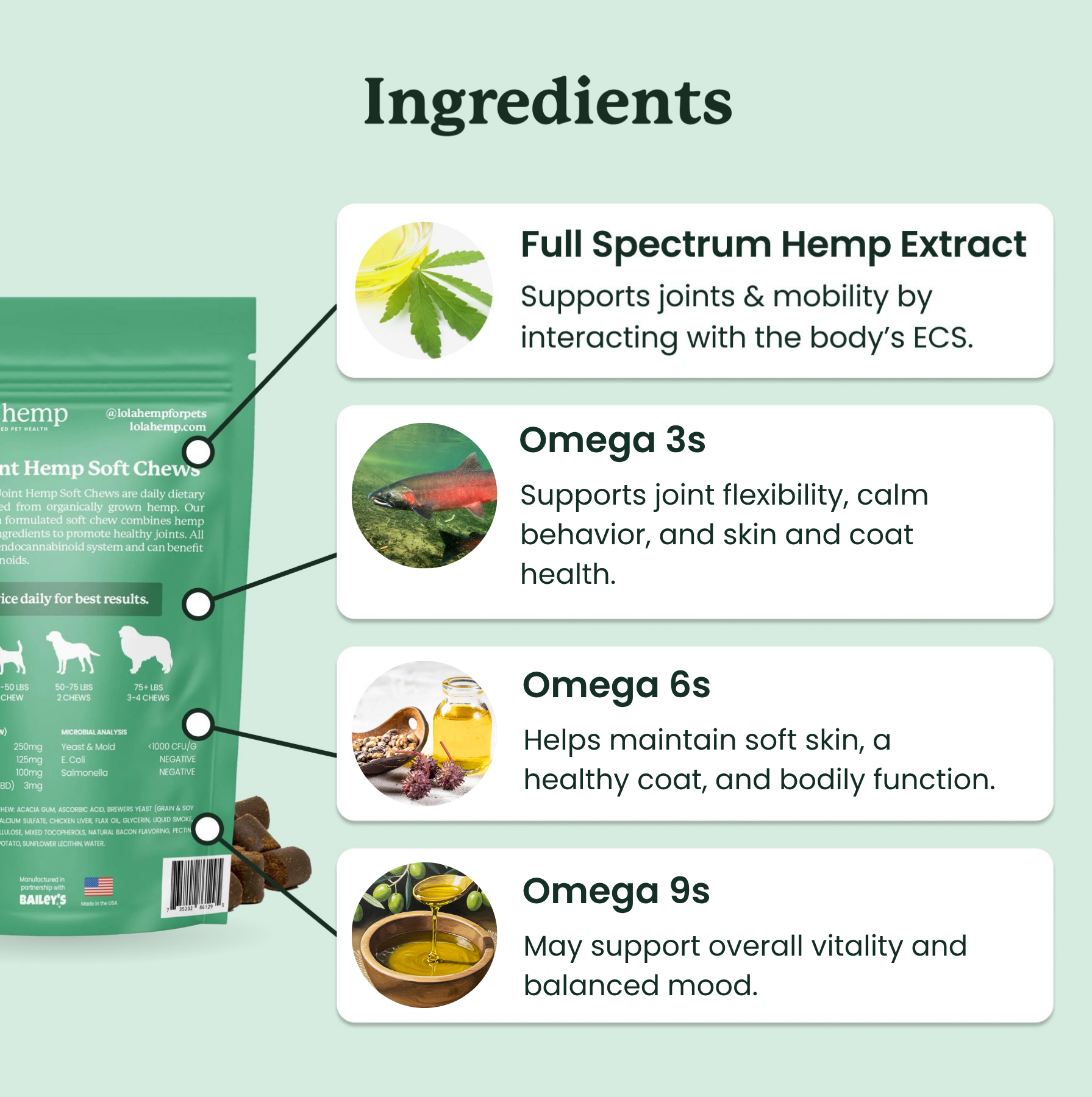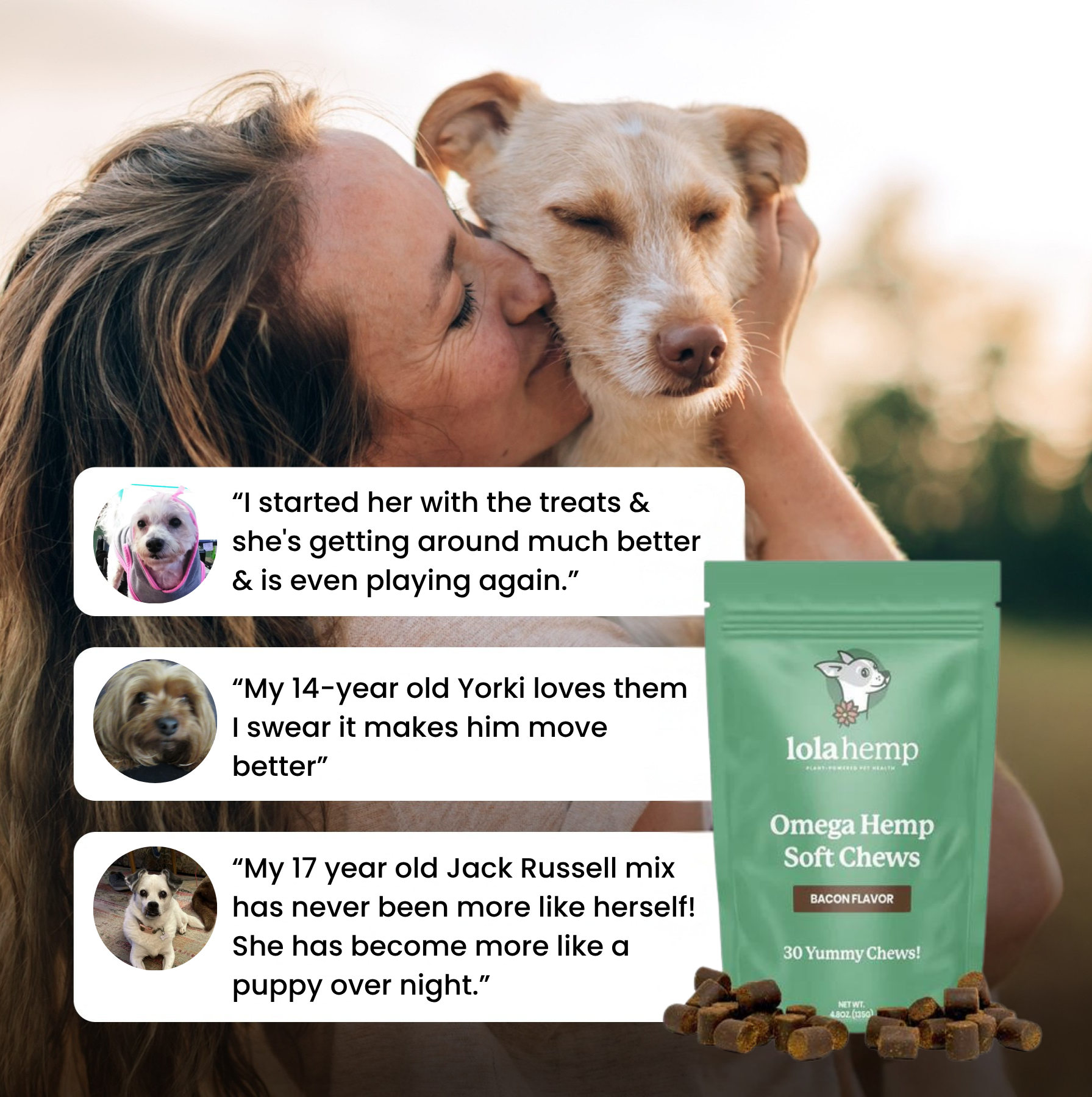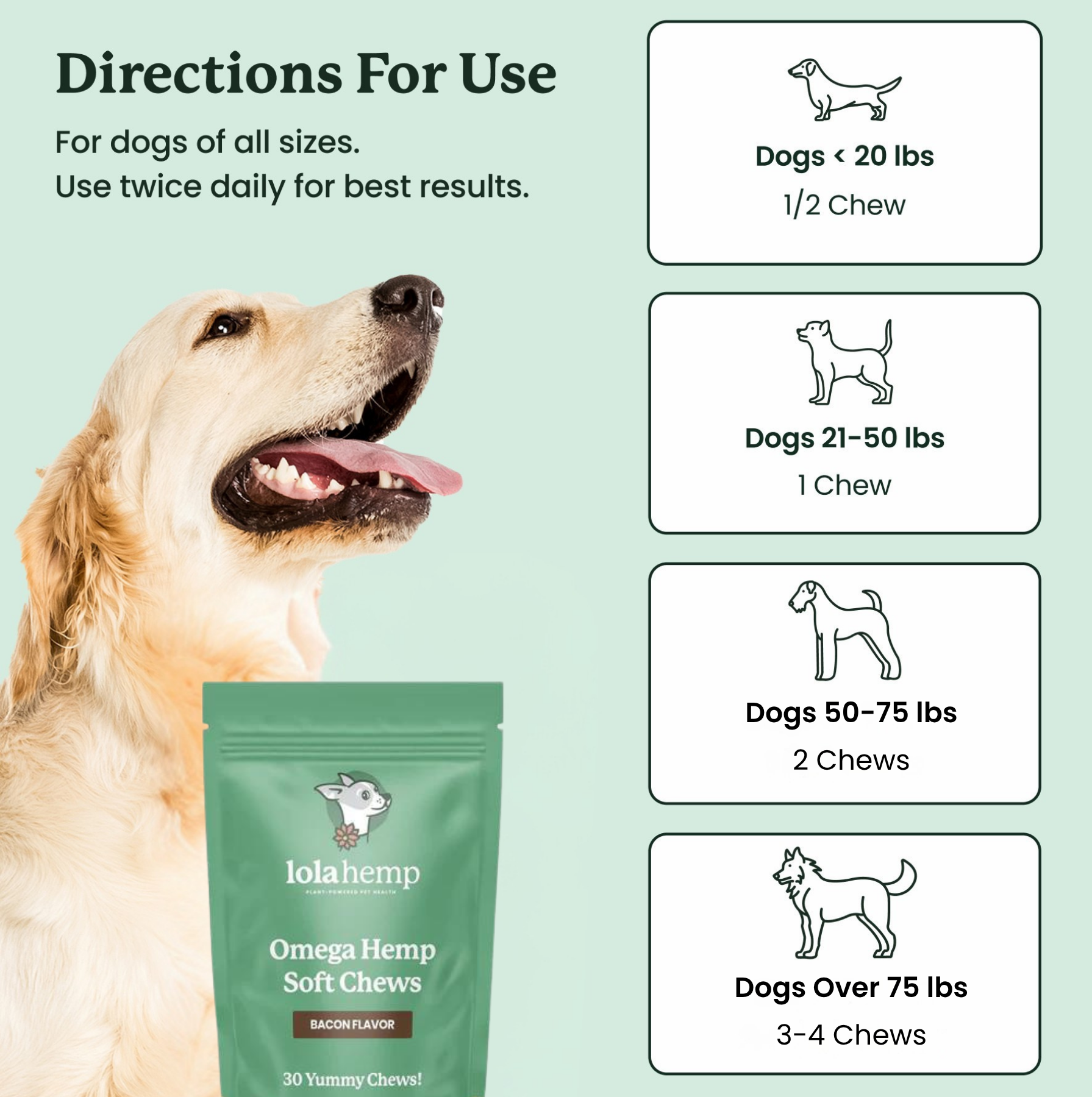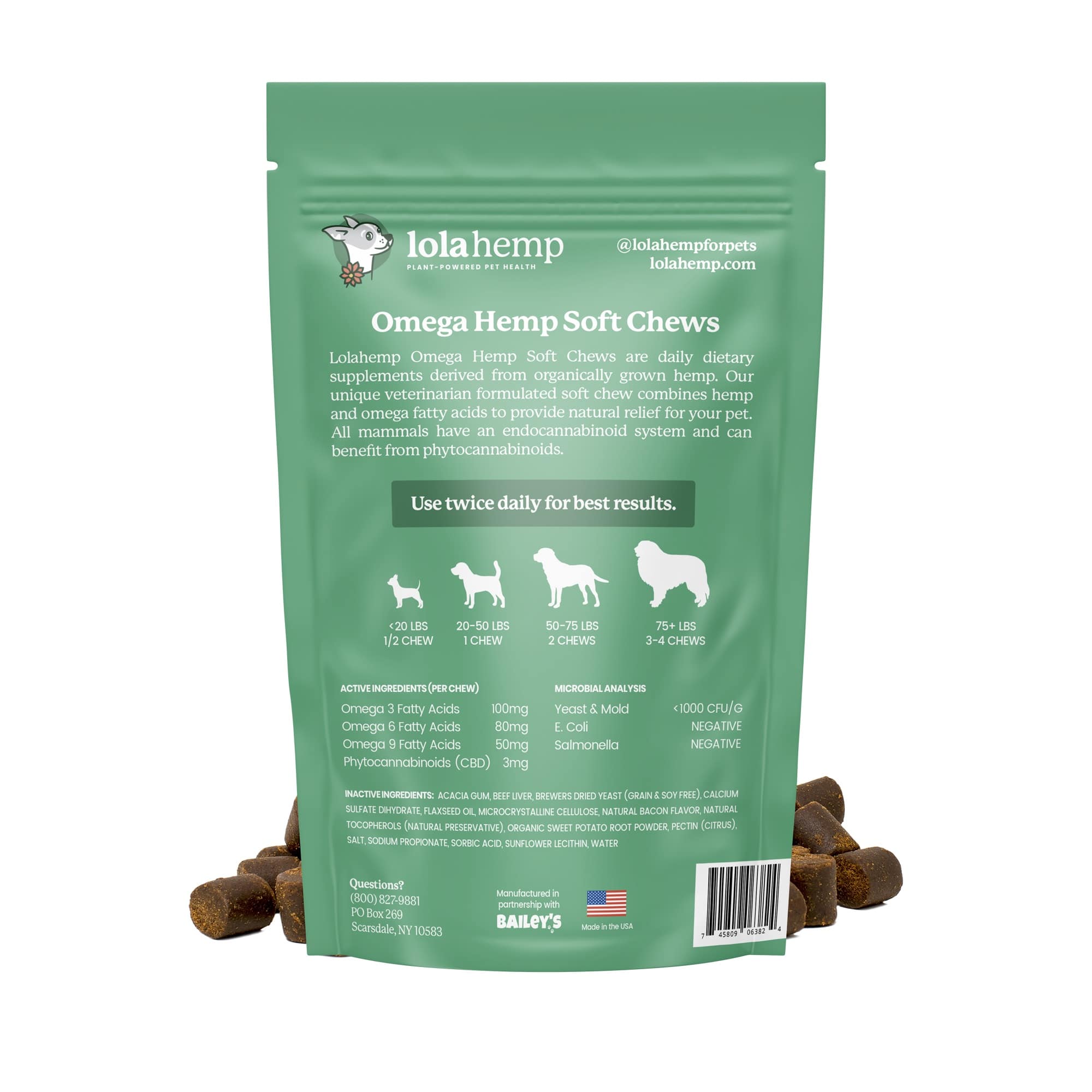Docosahexaenoic acid (DHA) is an essential omega-3 fatty acid that plays a crucial role in the health and well-being of dogs. As a fundamental component of brain tissue, DHA is particularly important for healthy brain development, cognitive function, and overall neurological health in dogs of all ages.

In recent years, the importance of DHA for dogs has gained significant attention, with pet owners and veterinarians recognizing its various benefits. DHA supports cognitive abilities, learning capabilities, and memory retention, making it especially vital during critical stages such as puppyhood and senior years.
This guide will explore the benefits, sources, and importance of DHA for your dog's health, choosing the right DHA supplement, and shedding light on proper dosage and administration.
Understanding DHA
DHA is crucial for various physiological functions, both in humans and animals. It is a type of polyunsaturated fat that is particularly important for brain development, cognitive function, vision, and overall neurological health. DHA is not produced in sufficient amounts in the bodies of dogs, making it an essential component that must be obtained through their diet.

Benefits of DHA for Dogs
The significance of DHA stems from its numerous health benefits and its role in supporting various bodily functions as follows:
Brain Development
One of the most significant benefits of DHA is its role in healthy brain development, especially in building a puppy's central nervous system. DHA is a major structural component of brain tissue and plays a crucial role in neural development. Adequate DHA intake during this period contributes to improved cognitive function, enhanced learning abilities, and better memory retention throughout a dog's life.
Cognitive Function
DHA, the most abundant fatty acid in the brain, plays a vital role in supporting cognitive function in dogs of all ages. It helps maintain mental acuity, sharpness, and cognitive flexibility, allowing dogs to adapt to new situations, learn commands, and engage in problem-solving activities effectively.
Vision Support
DHA is essential for maintaining healthy vision in dogs. It is a critical component of brain and retinal development. The retina is the light-sensitive tissue in the eye responsible for converting light to images in the brain, forming a dog's vision. Adequate DHA levels support optimal retinal function, contributing to clear eyesight, improved visual acuity, and overall eye health.
Reduced Inflammation
Omega-3 fatty acids, including DHA, possess anti-inflammatory properties to treat dogs with conditions such as arthritis, allergies, or inflammatory bowel disease. By lowering inflammation levels, DHA supports joint health, reduces discomfort, and promotes overall mobility in a dog's body.
Heart Health
Studies suggest that omega-3 fatty acids, including DHA, provide cardiovascular benefits for dogs. They help support heart function, reduce the risk of cardiovascular issues such as arrhythmias and heart disease, and contribute to a healthier circulatory system.
Skin and Coat Health
DHA helps in maintaining healthy skin and a shiny coat in dogs. It helps reduce dryness, itchiness, and flakiness, contributing to improved skin condition and a lustrous, healthy coat. Additionally, DHA supports the skin's natural barrier function, protecting against environmental stressors and promoting overall dermatological health.

Immune System Support
Omega-3 fatty acids, including DHA, play a role in supporting a healthy immune system in puppies. They help regulate immune responses, enhance immune cell function, and contribute to better immune defense against infections, diseases, and environmental toxins.
Anti-Aging Benefits
As puppies age, DHA may help support cognitive function and alleviate age-related cognitive decline. It promotes mental sharpness, memory retention, and overall brain health in older dogs, contributing to improved quality of life and well-being in their golden years.
Sources of DHA
Now that we understand the importance of DHA for dogs, let's explore the various sources from which dogs can obtain this essential nutrient:
Mother's Milk
Before weaning, a puppy's mother transfers DHA through her milk to her offspring, serving as the initial primary source of this nutrient.
Fish Oil
Fish oil is one of the most common and effective sources of DHA for dogs. It is derived from fatty fish such as salmon, mackerel, sardines, and herring, which are rich in omega-3 fatty acids, including DHA and EPA (eicosapentaenoic acid). These supplements are available in liquid or capsule form and can be easily added to a dog's food.
Algal Oil
For dogs that are allergic to fish or for owners who prefer plant-based options, algal oil is an excellent alternative source of DHA. Algal oil is derived from algae, which naturally produce omega-3 fatty acids, including DHA. It provides the same benefits as fish oils without the risk of fish allergies.
Fish
Including fatty fish in a dog's diet can also provide DHA. However, it's essential to ensure that the fish is properly cooked and free from bones to avoid any choking hazards or gastrointestinal issues. Examples of dog-safe fish include salmon, trout, and mackerel.
Algae-Based Foods
Some food products fortified with algae-derived DHA are available in the market. These include plant-based milk alternatives such as almond, soy, or oat milk, breakfast cereals, nutrition bars, and vegan omega-3 supplements.
Chia Seeds and Flaxseeds
Chia seeds and flaxseeds are rich in alpha-linolenic acid (ALA), which is a precursor to DHA. While dogs can convert ALA to some extent into DHA, the conversion efficiency is lower compared to the direct dietary intake of DHA. Nonetheless, including chia seeds or ground flaxseeds in your furry friend's diet can provide beneficial omega-3 fatty acids.

Commercial Dog Foods
Many high-quality commercial dog foods are formulated to contain optimal levels of essential nutrients, including DHA. When choosing dog food, look for products that specifically mention DHA content on the label, indicating that the formula is designed to support brain development and overall health.
Supplements
In addition to natural food sources, supplements designed specifically for dogs are available in the market. These come in various forms such as soft chews, capsules, or liquid formulations. They can be a convenient way to ensure that your dog is receiving an adequate amount of DHA in their diet.

Choosing the Right DHA Supplement
Below are some key factors to consider when selecting DHA supplementation for your furry companion:
-
Quality and Purity: Opt for high-quality supplements that are specifically designed for dogs. Look for products that undergo rigorous testing for purity, potency, and safety. Choose supplements from reputable brands that adhere to strict quality standards and use premium ingredients.
-
Source of DHA: Consider the source of DHA in the supplement. Fish oil supplements are a common choice and provide a rich source of omega-3 fatty acids, including DHA and EPA. Algal oil supplements are a suitable alternative for dogs with fish allergies or owners preferring a plant-based option. Ensure that the supplement provides sufficient DHA content per serving to meet your dog's needs.
-
Formulation and Dosage: DHA supplementation for dogs comes in various formulations such as capsules, soft chews, or liquid forms. Choose a formulation that is convenient for your dog to consume based on their preferences and needs. Consider the dosage instructions provided by the manufacturer and consult with your veterinarian to determine the appropriate dosage for your dog's age, size, breed, and health condition.
-
Additional Nutrients: Some supplements may contain additional nutrients or ingredients to support overall health and well-being. Look for those that offer a comprehensive blend of essential nutrients such as vitamins, minerals, antioxidants, and omega-3 fatty acids. However, be cautious of supplements with unnecessary additives, fillers, or artificial ingredients that may be harmful to your dog.
-
Third-Party Testing and Certification: Choose DHA supplements that undergo third-party testing and certification by reputable organizations. Look for certifications such as the National Animal Supplement Council (NASC) Quality Seal, which ensures that the supplement meets industry standards for safety, quality, and efficacy.
-
Veterinary Approval: Before starting your dog on DHA, consult with your veterinarian. They can provide valuable guidance on selecting the right supplement, determining the appropriate dosage based on your dog's specific needs, and monitoring their response to the supplement over time. Your vet can also assess any potential interactions with other medications or supplements your dog may be taking.
-
Manufacturer Reputation: Research the manufacturer of the supplement and consider their reputation, transparency, and customer reviews. Choose a manufacturer with a history of producing high-quality pet supplements and prioritizing customer satisfaction and pet health.

DHA Dosage and Administration Methods
Below are some general guidelines on dosage and administration methods of DHA for dogs:
Dosage Guidelines
Puppy Stage: During the critical stages of puppyhood when brain development is rapid, DHA plays a crucial role. Puppies may benefit from higher doses of DHA compared to adult canines. Dosages typically range from 25-100 mg of DHA per pound of body weight per day, but this can vary based on individual needs and the specific supplement used.
Adult Dogs: For adult canines, the recommended dosage of DHA is generally lower compared to puppies. Dosages can range from 10-50 mg of DHA per pound of body weight per day, again depending on factors such as overall health, activity level, and dietary intake.
Senior Dogs: Senior dogs may benefit from DHA supplementation to support cognitive function and overall brain health. Dosages for senior dogs can be similar to those for adult canines, but adjustments may be made based on age-related changes and specific health conditions.
Pregnant and Nursing Dogs: Pregnant and nursing dogs have increased nutritional needs, including DHA, to support the healthy development of their puppies. Dosages during pregnancy and lactation may be higher than usual, and it's essential to consult with your vet for personalized recommendations.

Administration Methods
Capsules: DHA supplements often come in capsule form. You can administer capsules by hiding them in your dog's food or treats. Simply open the capsule and sprinkle the contents over wet food or mix them into a small amount of canned food.
Soft Chews: Some supplements are available as soft chews or treats. These can be given directly to your dog as a tasty snack or incorporated into their daily routine.
Liquid Formulations: Liquid DHA can be added to your dog's food or water. Measure the appropriate dosage using the provided dropper or dispenser and mix it thoroughly with the food or water before serving.
Commercial Dog Food: Many high-quality commercial pet foods are formulated to contain optimal levels of essential nutrients, including DHA. If feeding a complete and balanced dog food, check the label to ensure it includes DHA and follow the recommended feeding guidelines provided by the manufacturer.
Natural Food Sources: Including DHA-rich foods in your dog's diet can also contribute to their DHA intake. Fatty fish such as salmon, mackerel, cod liver oil, and sardines are excellent natural sources of DHA. Cooked fish without bones can be safely included in your dog's meals as part of a balanced diet.
Always consult with your veterinarian before starting any new DHA supplement or making changes to your dog's diet. Your vet can assess your dog's specific nutritional needs, recommend the appropriate dosage of DHA, and provide guidance on the best administration method based on your dog's preferences and health status.
The Bottom Line

Docosahexaenoic acid (DHA) is vital for the overall health and well-being of dogs, particularly in terms of brain development and cognitive function. It is an essential omega-3 fatty acid that supports the central nervous system, contributes to healthy brain development in puppies, and maintains cognitive sharpness in adult and senior dogs.
Although dogs can obtain DHA from various sources such as fish oil, algal oil, and certain pet foods, it's crucial to ensure they receive the appropriate dosage tailored to their specific needs. Too much DHA can lead to potential health risks, so it's essential to follow the recommended dosage guidelines and consult with your veterinarian when incorporating DHA into your canine's diet.
When sourced correctly and administered in appropriate amounts, DHA is perfectly safe and beneficial for dogs, contributing to improved cognitive function, vision support, inflammation management, and overall well-being.
DHA for Dogs: Frequently Asked Questions
Is DHA safe for dogs?
Yes, DHA is generally safe for dogs when provided in appropriate amounts and according to veterinary guidance.
What does DHA do for dogs?
DHA supports brain development, cognitive function, vision, heart health, immune function, and healthy skin and coat.
Can puppies take DHA supplements?
Yes, DHA is especially important for puppies, as it supports early brain and eye development.
How long does it take to see benefits from DHA?
Most dogs may show improvements in cognitive function, coat quality, and inflammation within several weeks of consistent DHA intake.
Are fish allergies a concern when giving DHA?
Dogs with fish allergies may react to fish-derived DHA, but algal oil offers a safe, plant-based alternative.

